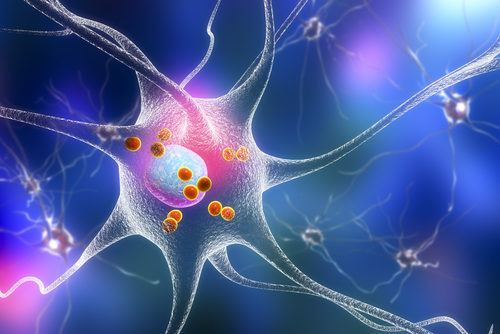This post was originally published on this site All his life, Greg O’Brien has had a front-row seat for Alzheimer’s disease. Growing up on Cape Cod, Massachusetts, he was the caregiver in a family of 10 children for his mother. His maternal grandfather and paternal uncle had Alzheimer’s, and his father was diagnosed with dementia…
Category: Alzheimer’s
Alzheimer’s Animal Studies Examine Lack of ‘Cleaning’ in Brain Cells
This post was originally published on this site Boosting mitophagy — a natural process that clears neurons from damaged mitochondria (cells’ energy powerhouses) — decreased amyloid plaque formation and reversed cognitive deficits, namely memory impairments, across different animal models of Alzheimer’s disease (AD). “When the cleaning system does not work properly, there will be an…
Anti-epileptic Therapy Not Linked to Increased Dementia Risk, Study Reports
This post was originally published on this site Use of anti-epileptic therapy is not linked to an increased risk of dementia, according to the results of a real-world study with more than 100,000 patients followed in general and neuropsychiatrist practices in Germany. However, generic forms of the anti-epileptic medicine levetiracetam may potentially have a deleterious…
HIV Therapy May to Help Stop ‘Jumping Gene’ Linked to Inflammation Associated with Aging
This post was originally published on this site HIV therapies that block an enzyme that is essential for viruses to replicate, called reverse transcriptase, may offer a new way of treating age-related disorders like Alzheimer’s, a study suggests. The study, “L1 drives IFN in senescent cells and promotes age-associated inflammation,” was published in the journal…
Education Does not Improve Adaptability of Brain in Old Age, Study Suggests
This post was originally published on this site A higher level of education is not related to better cognitive reserve — the ability of the adult brain to maintain normal cognitive function in the presence of neurodegeneration — in old age, a study suggests. However, the study, titled “Education and cognitive reserve in old age,” did find that it allowed…
Brain Metabolism of Hibernating Hamsters May Reveal Novel Therapeutic Targets for Alzheimer’s Disease
This post was originally published on this site Upon hibernation, the brains of Syrian hamsters undergo metabolic changes that involve the phosphorylation of tau protein — a hallmark of Alzheimers’ disease. However, this process is rapidly reversed upon waking and understanding it could lead to the development of new therapies for Alzheimer’s, a study suggests. The…
Video Series Informs About the Possible Role of Germs in Alzheimer’s
This post was originally published on this site Addressing fundamental questions about the possibility that Alzheimer’s disease might be brought about by infections, Alzheimer’s Germ Quest has released a series of eight videos, each about one minute long. Alzheimer’s Germ Quest supports research into the prospective infectious quality of the disease the Alzheimer’s Association says affects…
Gum Disease Bacteria May Play Role in Alzheimer’s Disease Development, Study Suggests
This post was originally published on this site Porphyomonas gingivalis, a bacteria that causes a type of gum disease known as chronic periodontitis, was found in the brains of Alzheimer’s patients, providing evidence of its possible role in the disease’s development, a study reports. The release of toxic enzymes from this bacteria was blocked by…
Alzheimer’s Association Funds 2-Year Extension of Study that Explores Intensive Blood Pressure Treatment on Dementia Risk
This post was originally published on this site The Alzheimer’s Association has funded a two-year extension of the SPRINT-MIND study — SPRINT MIND 2.0 — to further explore the role of intensive treatment to lower blood pressure and the risk of dementia. The funding, which totals more than $800,000, will allow researchers to follow the participants of the original…
Poor Sleep Quality in Older People Linked to Early Signs of Alzheimer’s
This post was originally published on this site People 60 or older with a disrupted pattern of deep sleep — the one that helps memory formation — have a higher accumulation of the Alzheimer’s hallmark tau protein in their brains, a study reports. These findings highlight how poor-quality sleep later in life is a potential sign…











